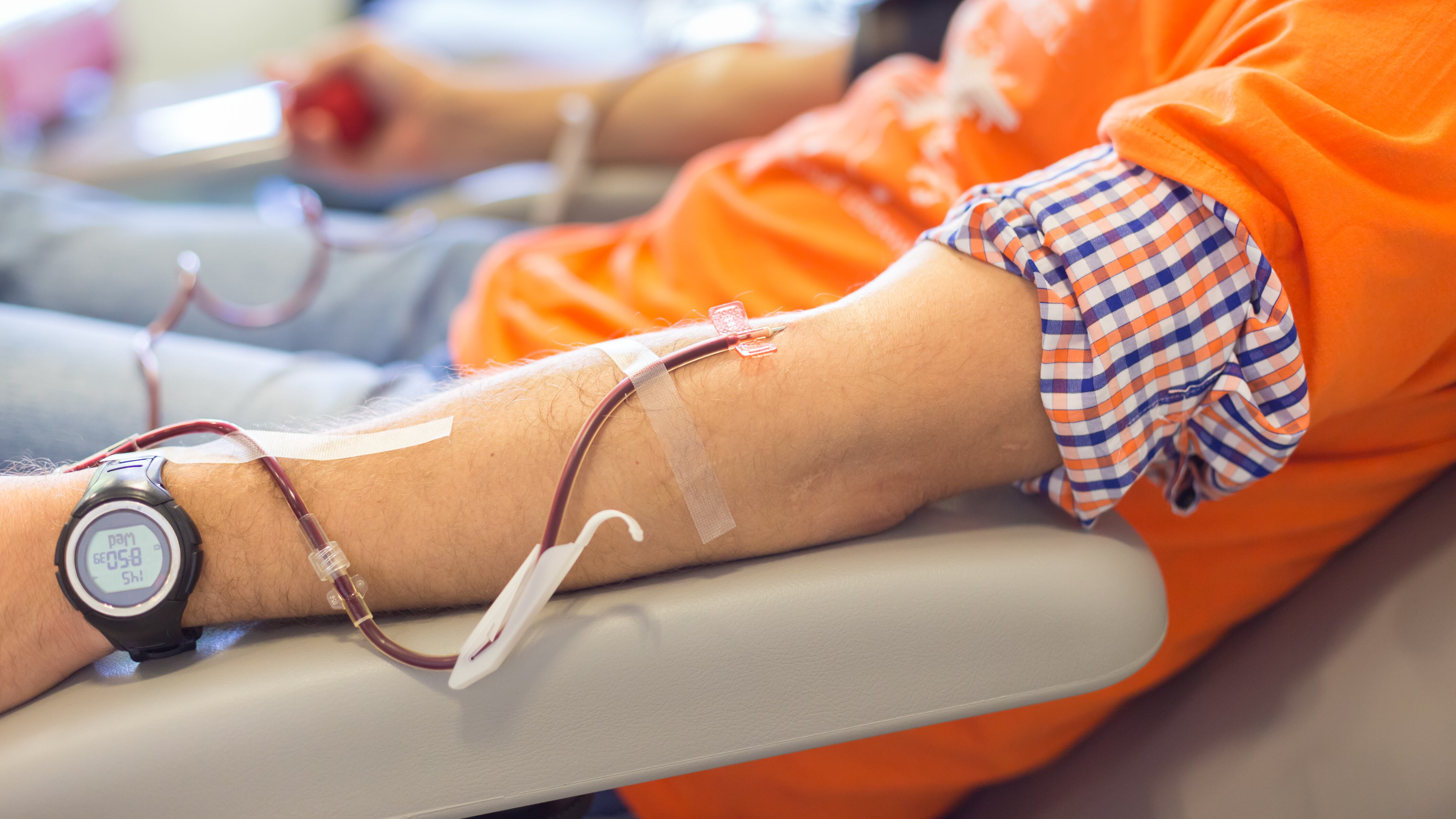I was recently telling a friend how, as a gay man, I was looking forward to finally donating blood—not just out of altruism, but also because it’s healthy to shed old, worn-out blood. Her expression of polite incredulity suggested I might be talking out of my ass. Was I? —Blood Simple
My favorite example of “burying the lede”—glossing over what should be the most attention-grabbing part of a story—comes from 2007, when headlines reported “Lady Bird Johnson, Widow of President Lyndon Johnson, Dies.” The real scoop, of course, was “Lady Bird Johnson Was Still Alive in 2007.”
I mention this, Blood, because I know you’re responding to last month’s announcement from the Food and Drug Administration that they will soon be abandoning the Reagan-era recommendation that gay men not be allowed to donate blood. There’s something about this news—I can’t quite put my finger on it—that seems to call that Lady Bird Johnson story to mind.
Of course, the FDA only pushed the most extreme version of the rule (a total lifetime ban for all gay men) during the very early phases of the AIDS panic. You know, from 1986 until—when was it? Oh, yeah; 2015. Then they relented: Gay men could donate as long as they’d been celibate for at least 12 months. That requirement was reduced to three months in 2020. Whoa, slow down there, FDA! (For the record, routine HIV testing for all donated blood began in 1985.)
In any case, is giving blood good for you? Sure, as long as you discharge blood’s contrary humor, black bile, at the same time. At your next bloodletting, ask your barber to apply some leeches to your abdomen. (If that doesn’t purge the bile from your system, there’s always writing a letter to the editor.)
Just kidding! In fact, it turns out that there are real health benefits to giving blood. If you’re one of the roughly 1 million Americans with hemochromatosis (excessive iron uptake), giving blood will help a lot. Even if you’re not, the mini-health screening all donors receive occasionally catches previously undiagnosed conditions. Also, the warm, fuzzy glow of a good deed seems to measurably improve health outcomes in the same way that volunteering does.
Finally, there’s the fact that giving blood takes about 500 to 600 calories out of you. It’s probably not a long-term weight loss solution, but at least you don’t have to feel guilty about eating that Bloodmobile cookie.
Questions? Send them to dr.know@wweek.com.

